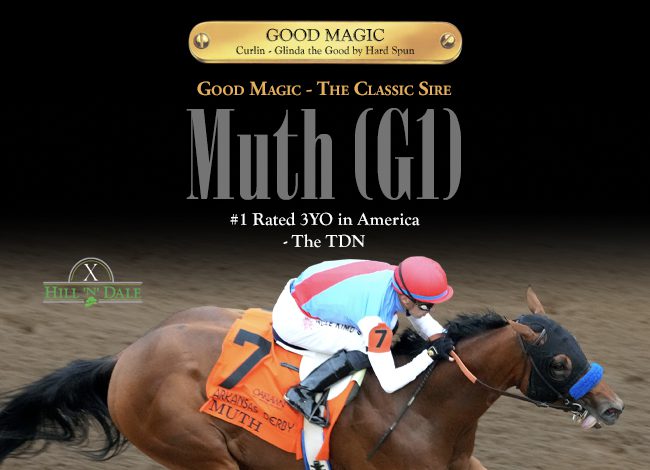By Jocelyn de Moubray
The following Letter to the Editor was submitted in response to Kevin Blake's Jan. 4 Op/Ed on how Ireland and Britain need to continue working together for their mutual benefit, despite the upcoming challenge of Brexit.Should you wish to chime in, please send your thoughts to [email protected].
Kevin Blake may well be correct in saying that Britian and Ireland are the finest breeders of flat racehorses in the world, but his figures do not give the full story. As anyone involved with breeding in France or Germany knows, where a horse is bred is not a straightforward question and the suffix it carries after its name does not tell the whole story.
As long as a majority of Europe's best stallions are based in England and Ireland, and although France has made great strides in recent years with horses like Siyouni (Fr), Le Havre (Ire) and Wootton Bassett (GB) this is still the case, breeders in France and Germany who aspire to competing at the top international level are obliged to send their mares to be covered abroad, which means in many cases to foal abroad too. As a result the
leading performers bred by breeders like the Wertheimers brothers, the Ecurie des Monceaux, the Haras de Saint Pair, or Gestut Ammerland, Gestut Rottgen and Gestut Fahrhof and many others more often than not carry the suffixies Ire or GB, as that is where they were born. In 2018, you only have to consider horses like Polydream (Ire), Intellogent (Ire), Magic Wand (Ire), Sistercharlie (Ire), Trais Fluors (GB), bred and raised in France but born elsewhere. If it is only the suffix which counts then
Goldikova (Ire), the best known French horse of the century, would be included among the successes of Irish breeding.
In France this problem has been addressed, not without controversy, by the assimilé scheme. Horses who are born outside France can qualify for French bred premiums as long as they return to France with their dams at the end of the covering season and remain in France up to a certain point of their yearling year. In Germany, there is a similar scheme and a mare has to stay in Germany at least once every three years if her progeny are to qualify for premiums.
There have been those in France and Germany who wished to take a different, nationalistic approach and to give premiums only to the progeny of domestic sires. However, in France and Germany those arguing for international cooperation and the pursuit of excellence prevailed and over the last few decades exchanges between the major European breeding and racing countries have expanded dramatically. One would have
thought this was a clear example of where European countries have all benefited from working together to facilitate exchanges and the movement of people and goods. These benefits and this cooperation will clearly be affected by Brexit and directly threatened by a no deal Brexit.
Safeguarding these exchanges is in all probability more important than arguing about which of the European countries has the best record for producing high-class horses. European racing and breeding have moved ever closer together during the 21st Century and we have to hope this movement is not brought to a sudden halt on Apr. 1st.
Not a subscriber? Click here to sign up for the daily PDF or alerts.






